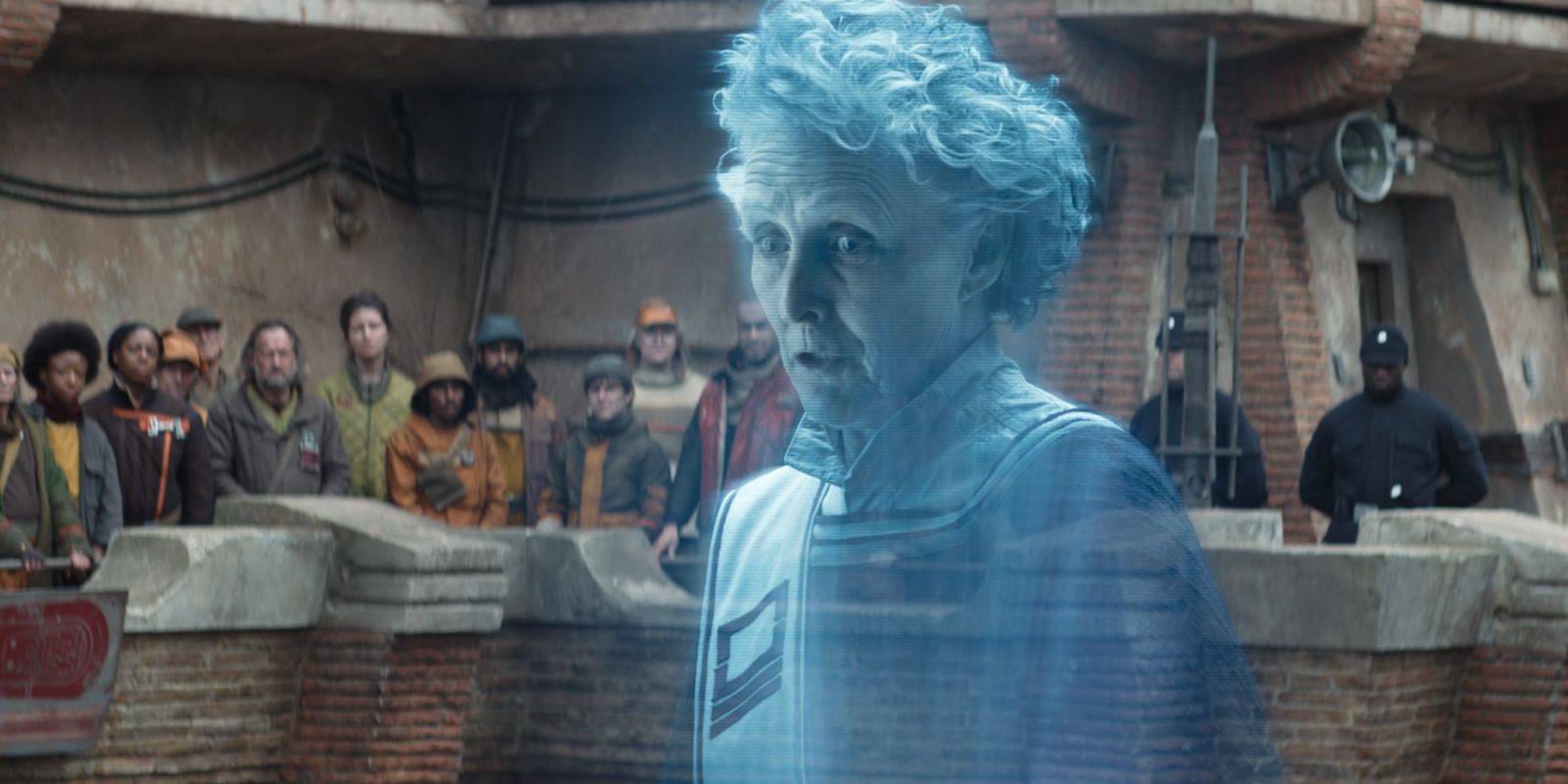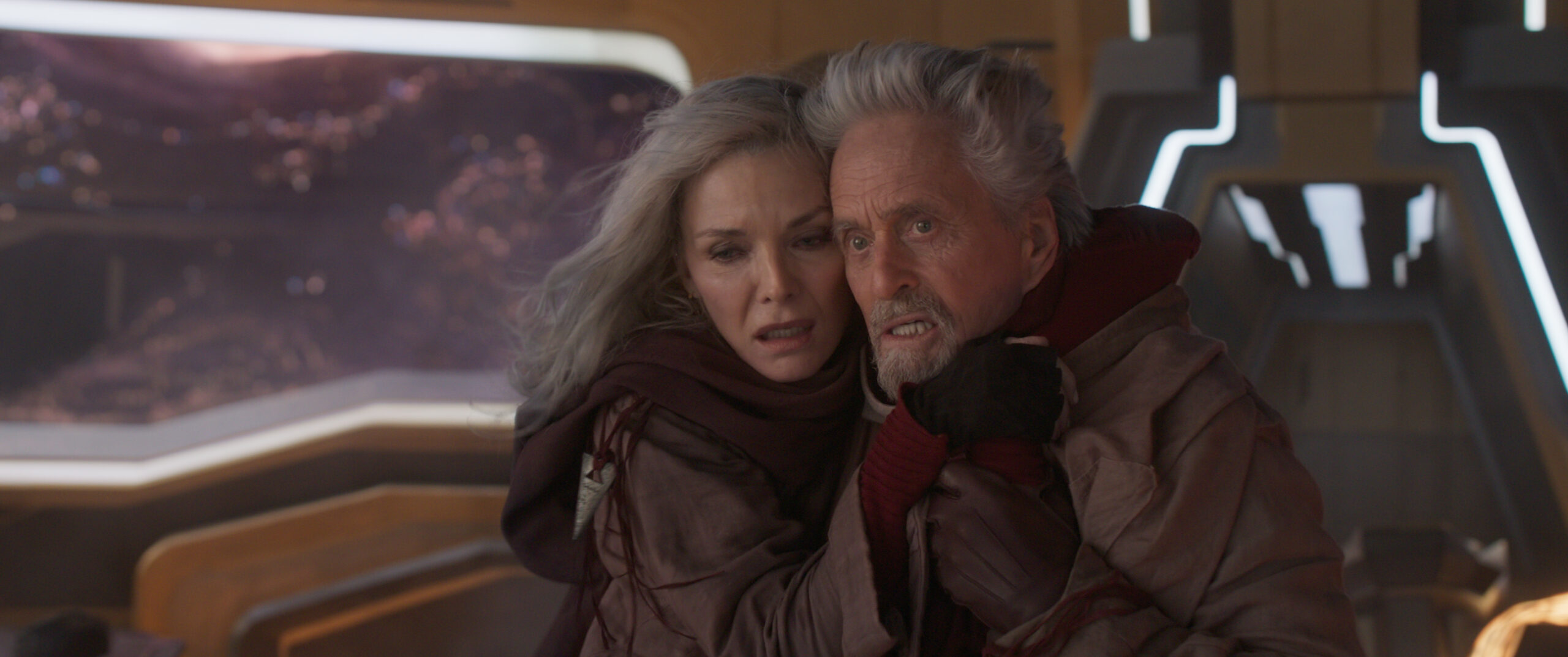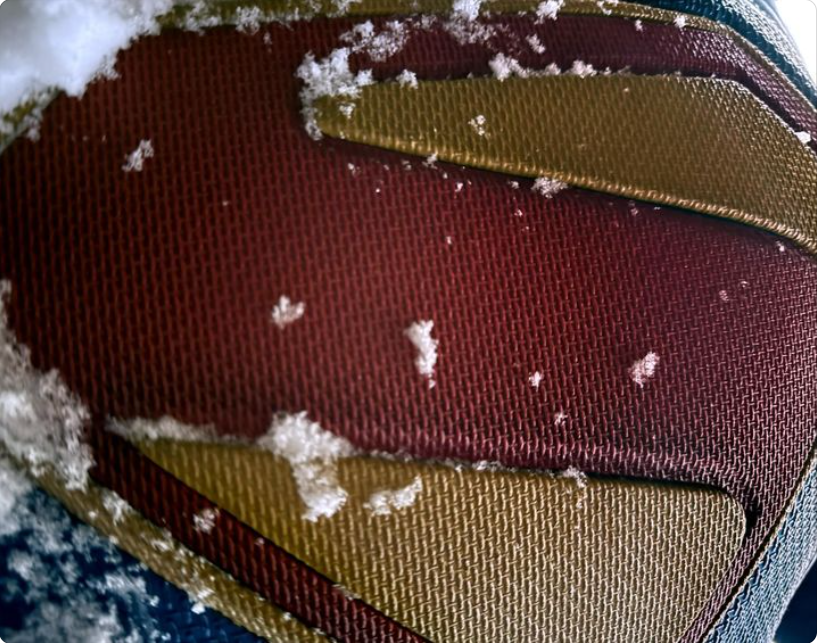![]()
Actor Peter Sarsgaard plays villain Bart Bogue in Antoine Fuqua’s The Magnificent Seven
When you go to see Antoine Fuqua’s The Magnificent Seven this weekend, you’ll probably be impressed by how slimy a villain Peter Sarsgaard plays as Bartholomew Bogue, a wealthy man who causes problems for the town of Rose Creek, to the point where they need to call on a team of unruly outlaws, played by Denzel Washington, Chris Pratt, Ethan Hawke, Vincent D’Onofrio and Byung-hun Lee, for help. (We’ll have interviews with the latter two very soon.)
It’s not the first time that Sarsgaard has played a bad guy, since he did play Hector Hammond in the unfortunate attempt to bring Green Lantern to the big screen. But before that, Sarsgaard has starred in a mix of indie and studio movie that established himself as one of the great supporting character actors. Everything from Garden State to Shattered Glass to An Education have benefitted from Sarsgaard’s presence, so it’s interesting to see him brought in the world of Westerns with the new take on the 1960 classic.
Sarsgaard also appears in Pablo Larrain’s upcoming film Jackie (as in Kennedy), playing her brother-in-law Robert Kennedy, a performance that might put Sarsgaard back into the awards conversation for the first time in over a decade.
LRM sat down with Sarsgaard at the Toronto International FilmFestival (TIFF), where The Magnificent Seven had its world premiere as the Opening Night Gala. Sarsgaard looked well-rested, having spent the summer taking it easy in Vermont.
LRM: They don’t make a lot of Westerns these days, although they’re making more than they did five years ago. As an actor, is it one of those things where you hear they’re making a Western, you have an interest it?
Peter Sarsgaard: It just depends on the story. I do have something in my head from being a kid. Like Sunday mornings, I used to watch a lot of Westerns, a lot of King Kong, Godzilla, all that kind of stuff. Tarzan. So I watched that every Sunday, so I had a lot of not-classic Westerns in my head. I think in college I got more interested in them from a theory point of view, and I took a film class and was interested in the idea of a Western and what it means and that idea of the vigilante, which this movie totally has.
LRM: Did they come to you with the part or did you just read the script and were interested in doing something?
Sarsgaard: No, they gave it to me and said, “Do you want to play this part?†I was doing Hamlet in New York at the time, and that character is whatever you want it to be, but for me, a large part of it was getting into a view of humanity that’s very distanced — dangerously distanced. A lot of artists step out of life a little bit to see it. So do a lot of misanthropic narcissists and sociopaths. (Laughs) As an artist, this is like behavior I kind of understand, and I had gone through it doing Hamlet, so when I came around to doing this, it was quite easy to step into the space of somebody whose intentions were unclear, whose hate was absolutely, even for himself. It’s not like I’m doing it for the money. I’m doing it for the lust for violence.
LRM: But land in those days was a pretty good motivator to do some of the things he does…
Sarsgaard: Nah, he’s not doing it for the land. I think it’s diabolical. It’s the type of movie where those sorts of reasons are less important, because really what the effect of my character needs to be is to establish throughout the movie, consequences for everything.
LRM: Do you feel like you want to create your own backstory or is all of that in there?
Sarsgaard: No, it doesn’t matter.
LRM: Not even for your own personal sake of knowing what the character is about?
Sarsgaard: No, not really, because the more obtuse, the more you can project onto this guy, the better. It’s the value of giving a surface performance — being large, being quiet — of not trying to get into “why?†because I’m the embodiment of fear. I’m terrorism. The whys of terrorism aren’t the purpose of it. It’s meant to terrorize.
LRM: Do you think that Rose Creek is just the latest town he’s hit, and he’s gone through other towns doing the same thing and has just gotten away with it?
Sarsgaard: Sure, sure, absolutely. Being sick was also interesting. I added a little consumption into the role. I wanted to give him… his life was ticking away, so he no longer cared. He had entered a place of total liberation, because even dying is still there.
![]()
LRM: I can relate to that since I’ve been so sick I just couldn’t deal with anyone else.
Sarsgaard: Yeah, blah blah blah. I’ve even been around people who were dying who are just like, “You’ve always irritated the sh*t out of me and I don’t want you to be around anymore. I’m over here dying. It’s my time now.†And so, you can imagine in the hands of someone like this who is a violent misanthrope, it would give him total liberation.
LRM: Being an actor in a Western, do you feel there’s a certain way to do your lines or play a role different than in another genre?
Sarsgaard: Maybe subliminally, I don’t know. Obviously, I grew up watching a lot of Westerns just like everybody else. Maybe. It’s hard to know. Not intentionally.
LRM: I feel like we all have that in our head in some way, even if it’s just from playing “Cowboys and Indians†as a kid.
Sarsgaard: How do people in a David Lynch movie always act like they’re in a David Lynch movie? David Lynch doesn’t say, “Do that David Lynch thing.†It’s because the power of his movies throughout our lives, we all know what that world is, and as an actor, if you’re sensitive to it, you just step right in. How do you know in a Woody Allen movie to do overlapping dialogue and talk with that sort of patter? It’s an anxiety and all that rest of it. It’s because you’ve seen Woody Allen movies and unconsciously you know.
LRM: I think also for actors there’s an anxiety with being in a Woody Allen movie.
Sarsgaard: Oh, there’s a lot of anxiety there. He also gives you total freedom. He does both, so you feel like “Sh*t,†but at the same time he’s saying, “You can do whatever you want. You can actually say whatever you want.â€
LRM: For your character in the movie, you don’t have to get quite as dirty as everyone else. I’m not sure we see you ride a horse…
Sarsgaard: Once.
LRM: So did you have to go do some of the training with the other guys?
Sarsgaard: I know how to ride a horse. I’ve shot guns. Bogue doesn’t actually do much killing in his own life normally. I didn’t imagine that I was playing someone who was like “Quick Draw McGraw†so I didn’t bother learning any of those quick draw techniques. Actually, when I go to people — because I’ve got five guys standing around me — I think in the scene where I kill him, I actually show him the gun. I give him (a look like) “This might be interesting for you since you’re about to be killed by it. This is the object that’s going to end your life.†(laughs) I’m interested in violence as a character in it. I want to sense… I want to get my face in it. I think he’s also not a guy who, before he got sick and was like this, did a lot of it himself. I think he’s going down… worse and worse. To the end of movie, where I’m in hell.
LRM: What was the dynamic like inyour section of the movie? Because you appear in the beginning and then we see the Magnificent Seven forming and you only sporadically before you return at the end. Were you around when they were doing some of the other stuff?
Sarsgaard: No, I came in and did my thing in three installments and they were spaced over maybe two weeks each. They shot it—with the exception of the big battle scene, which I think was in a funny place—the rest of the story was shot I think largely in sequence or close to it. They were on one or two sets mostly, so they were able to shoot more sequentially than you normally can.
LRM: I feel like Bart has his own little movie going on within this movie until that battle sequence.
Sarsgaard: It was like that in Green Lantern, too. People would be like, “How was it working with Ryan Reynolds?†and I’d be like, “We met late in shooting and worked together for a couple days.†Because bad guys and good guys don’t share scenes together until it’s time for them to have THE scene together. If you’re playing a villain in a big movie like that, you can actually lose track of what the tone is, because you aren’t around to absorb it. Actors are kind of creating it together. What is the vibe here? Unless you’re in a David Lynch movie. We all know what’s going on.
LRM: I hope David Lynch makes another movie soon, because it’s been a while. Is that someone you’d want to work with?
Sarsgaard: Oh, man… I was going to work with him at one point and for reasons were beyond anyone’s control, it couldn’t work, and I was so bummed.
LRM: For some reason, I think you would be so good in a “Twin Peaksâ€-like show. Have you done TV much?
Sarsgaard: I’ve only ever done one year of TV. I’m not the marrying kind. I don’t like not knowing where I’m going. I like to know… I don’t want to be told in the tenth episode that I’m a pedophile.
LRM: When you get a role in a movie you know everything that’s going to happen.
Sarsgaard: I know what is going to be expected of me, and I think on a TV show… I enjoy acting. I would like to work as much as you do on a TV show. I don’t work that much. They go to work every week for months and do a lot of volume of material; they’re going through pages and pages. I like that part of it. I just don’t want to play the same person for five years.
LRM: When I spoke to Margo Martindale, she mentioned being on three shows at the same time, and I can’t even imagine how you keep track of the characters you’re playing.
Sarsgaard: It’s impossible. I couldn’t do that.
LRM: You mentioned that you spent the summer in Vermont, so do you have any projects coming up next?
Sarsgaard: Yeah, I have a project that’s going to get announced shortly that I’m doing in Colombia. I’ll be doing that this fall, and yeah, I’m kind of in a place of waiting for something really interesting. My wife (Maggie Gyllenhaal) is doing an HBO series, so I spent the summer in Vermont not doing any work with the exception of this one thing I’m doing. I have this spot on America Divided, a series coming out on FX that’s just a doc series coming out before the election, and I did something on the opiate epidemic in Dayton, which I’m really excited about. But yeah, I’m looking for something. There are very few projects that you think, “God, I really want to be in that,†you know what I mean? I don’t feel like working in something I’m not passionate about even satisfies the urge to work, so I just don’t do it.
The Magnificent Seven opens nationwide on Friday, September 23 with previews Thursday night. Look for more interviews from the movie here on LRM in the next couple days.
Â

 FOR FANBOYS, BY FANBOYS
Have you checked out LRM Online’s official podcasts and videos on The Genreverse Podcast Network? Available on YouTube and all your favorite podcast apps, This multimedia empire includes The Daily CoG, Breaking Geek Radio: The Podcast, GeekScholars Movie News, Anime-Versal Review Podcast, and our Star Wars dedicated podcast The Cantina. Check it out by listening on all your favorite podcast apps, or watching on YouTube!
Subscribe on: Apple Podcasts | Spotify | SoundCloud | Stitcher | Google Play
FOR FANBOYS, BY FANBOYS
Have you checked out LRM Online’s official podcasts and videos on The Genreverse Podcast Network? Available on YouTube and all your favorite podcast apps, This multimedia empire includes The Daily CoG, Breaking Geek Radio: The Podcast, GeekScholars Movie News, Anime-Versal Review Podcast, and our Star Wars dedicated podcast The Cantina. Check it out by listening on all your favorite podcast apps, or watching on YouTube!
Subscribe on: Apple Podcasts | Spotify | SoundCloud | Stitcher | Google Play



